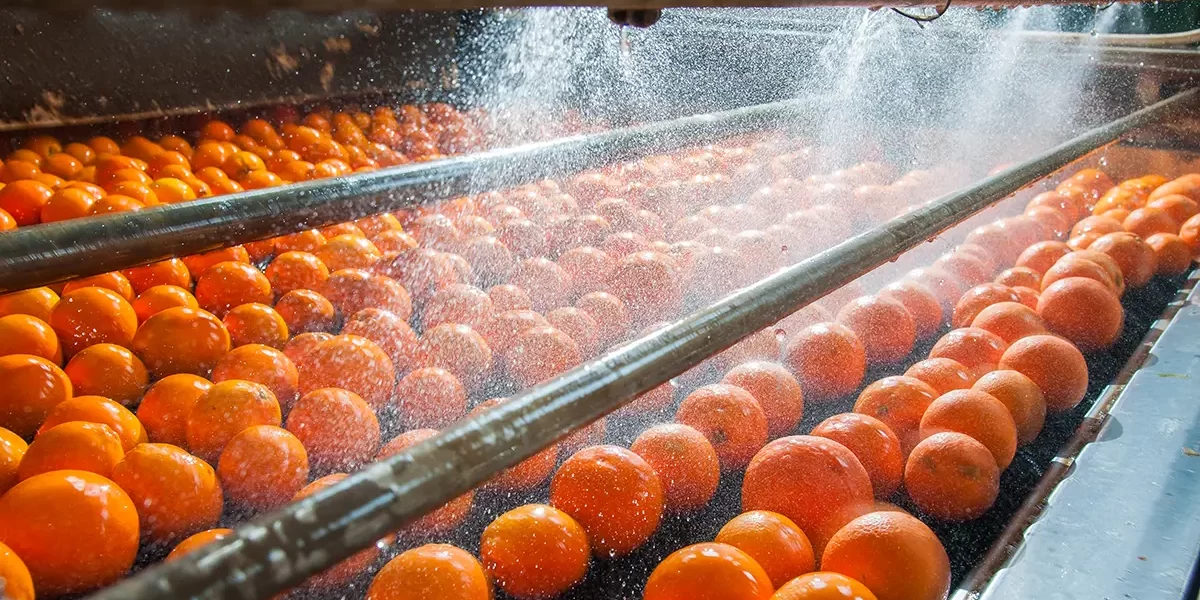The food and beverage industry is one of the most water-intensive sectors in the global economy.
Water is a critical resource at every production stage, from agriculture irrigation and vertical farming to processing, cleaning, and packaging.
As concerns over water scarcity and environmental sustainability continue to rise, the industry’s water footprint has become increasingly scrutinised. Addressing these concerns ensures long-term operational viability and meets consumer expectations and regulatory requirements.
Understanding Water Footprint in the Food and Beverage Industry
The water footprint of a product refers to the total volume of freshwater used to produce it, encompassing all stages from raw material extraction to final production. In the food and beverage industry, this includes water used for growing crops, raising livestock, processing ingredients, cleaning equipment, and maintaining hygiene standards in production facilities.
Given the vast amounts of water required, the industry faces significant challenges in managing its water resources efficiently. Addressing these challenges is vital to avoid increased costs, supply chain disruptions, and potential damage to brand reputation. Pressure to reduce water consumption and ensure sustainable practices is mounting as global water resources become increasingly scarce.
The Role of Water Disinfection in Reducing Water Footprint
One key aspect of managing the water footprint is ensuring the safety and quality of the water used in production processes. Contaminated water can lead to foodborne illnesses, product recalls, and significant financial losses. Therefore, effective water disinfection is essential in maintaining the safety and integrity of food and beverage products.
Traditional water disinfection methods, such as chlorination, can be effective but often have drawbacks, including the formation of harmful byproducts and high operational costs. These methods may also require large quantities of chemicals, contributing to the industry’s environmental footprint.
Scotmas’ Advanced Chlorine Dioxide-Based Technology
Scotmas’ advanced Chlorine Dioxide-based water disinfection technology offers a superior solution to water safety challenges in the food and beverage industry. Chlorine Dioxide (ClO₂) is a powerful oxidant that eliminates many pathogens, including bacteria, viruses, and fungi, without forming harmful byproducts commonly associated with traditional chlorination methods.
Increasing Water Safety: Scotmas’ Chlorine Dioxide technology provides the primary benefit of providing consistent and reliable disinfection, ensuring that the water used in production is free from contaminants. This is particularly crucial in the food and beverage industry, where water is a key ingredient and plays a vital role in maintaining hygiene and preventing cross-contamination. Scotmas’ technology enhances food and beverage products’ safety and quality by delivering ultra-pure, pathogen-free water.
Reducing Operating Costs: Another significant advantage of Scotmas’ technology is its cost-effectiveness. Chlorine Dioxide is more potent than many traditional disinfectants, meaning that smaller quantities are required to achieve the same level of disinfection. This efficiency leads to lower chemical usage and reduced storage and handling costs. Additionally, Scotmas’ systems are designed to optimise the dosing of Chlorine Dioxide, further minimising waste and ensuring that the disinfection process is as cost-effective as possible.
Minimising Environmental Impact: Environmental sustainability is a growing concern for the food and beverage industry, and reducing the environmental footprint is a top priority. Scotmas’ Chlorine Dioxide technology contributes to this goal by reducing the need for large-scale chemical use and by eliminating the production of harmful disinfection byproducts. The technology’s efficiency in water treatment reduces the water required for disinfection, contributing to a smaller overall water footprint. This helps companies meet their sustainability targets and aligns with consumer expectations for environmentally responsible practices.
Chlorine Dioxide: A Game Changer
Adopting innovative and sustainable technologies is essential as the food and beverage industry faces increasing pressure to manage its water footprint. Scotmas’ advanced Chlorine Dioxide-based water disinfection technology offers a powerful tool for addressing the dual challenges of water safety and environmental impact. By ensuring high water safety levels, reducing operating costs, and minimising environmental footprint, Scotmas is helping food and beverage producers manage their water resources more effectively, paving the way for a more sustainable and secure future.
In a world where water scarcity and sustainability are central concerns, the food and beverage industry must proactively address its water footprint. With solutions like our Chlorine Dioxide solutions, companies can meet these challenges head-on and gain a competitive edge by delivering safer, more sustainable products to their customers.
Contact Scotmas today to learn more about how our innovative technology can support your sustainability goals and enhance operational efficiency.






